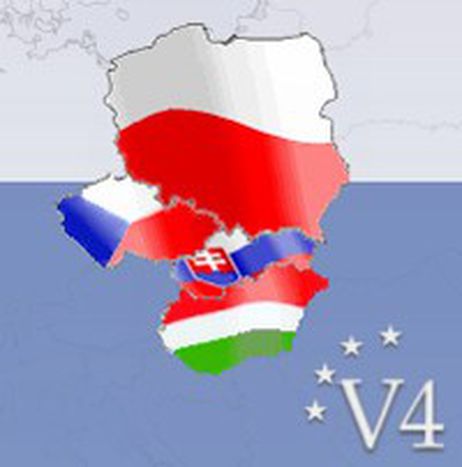
Visegrad moving forwards
Published on
Since 1991, Hungary, Poland, Slovakia and the Czech Republic have been attempting to work in closer cooperation. The Visegrad Group, as they are known, has since joined the EU, so what’s in stock for the future?
As relatively small countries both in terms of political and economic power, cooperation allows the Visegrad countries to put forward a united front, making their common position stronger. But now that mutual ambitions such as accession to the European Union have been realised, people there are beginning to question in what capacity they can continue to work together.
Scaling down
Despite a less than harmonious past dating back to the Hungarian Empire and running up to the break-up of Czechoslovakia in 1993, it seems that today most people are keen to maintain close relations. Zoltán Varocsi, a Hungarian student, believes “it is necessary to strengthen regional cooperation in as many areas as possible. Since the accession of the Visegrad countries to the EU, there has been more opportunity for this to occur. In this respect, the Visegrad Group could become as important an international grouping as the Baltic or Nordic Councils.” But this cooperation, which so far has had the objective of increasing international status for its four member countries, needs to become more inwards-looking. As Agniezka Lipczinski, a Polish student, puts it: “Common efforts to enter Western European and transatlantic organisations have paid off [with Visegrad’s entry into the EU and NATO] and the focus should now be shifted to lower levels of politics.”
Her observation is shared by many across the Visegrad countries, who believe that cooperation on a regional and even local basis is the right way to maintain the special relationship between the four countries. One such important area in which there have been advances is the non-governmental sector, in particular as regards young people. For example, this year’s Visegrad Youth Conference, held in Warsaw from April 19-24, resulted in the creation of the Visegrad Youth Association, an international NGO consisting of youth organisations from the Czech Republic, Hungary, Slovakia and Poland. The main goals of this new association are to enhance the role and involvement of civil society in public life, to develop international cooperation among the Visegrad countries and to promote education and youth development.
Constitution divides
But although projects such as these help to foster closer relations between the Visegrad nations, their official opinions on European topics can often be rather divergent. The most recent example of this is the attitude of the various parliaments towards the proposed European constitution. While the Hungarian and Slovak parliaments ratified the treaty by huge majorities (304 votes to nine in Hungary), politicians’ opinions in the Czech Republic and Poland, where referendums had been planned, are much more conflicting. However, ordinary people across the four countries are just as divided and ill-informed on the constitution as elsewhere in Europe, and in this respect the Visegrad countries are no different to the other member states. According to Agniezka, “there are lots of misunderstandings stemming from the lack of information” which, as the Slovak student Peter Dolák points out, “in combination with ongoing nationalism maintains the dubious atmosphere concerning the EU constitution.”
Putting the constitution aside, the common ground which has been gained since 1991 is indisputable and the public’s desire for closer relations means we are unlikely to see the end of the Visegrad Group’s fruitful relationship. But whatever direction future cooperation takes, it will be in the framework of the European Union, accession to which is one of their biggest achievements so far.



